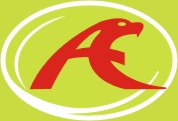
Academia Pernambucana de Letras
Encyclopedia

Recife
Recife is the fifth-largest metropolitan area in Brazil with 4,136,506 inhabitants, the largest metropolitan area of the North/Northeast Regions, the 5th-largest metropolitan influence area in Brazil, and the capital and largest city of the state of Pernambuco. The population of the city proper...
by Carneiro Vilela and other pernambucan
Pernambuco
Pernambuco is a state of Brazil, located in the Northeast region of the country. To the north are the states of Paraíba and Ceará, to the west is Piauí, to the south are Alagoas and Bahia, and to the east is the Atlantic Ocean. There are about of beaches, some of the most beautiful in the...
writers of time, with a total of 20 seats. One of the first letters academies of Brazil, being surpassed only by Academia Cearense de Letras, by Academia Brasileira de Letras
Academia Brasileira de Letras
Academia Brasileira de Letras is a Brazilian literary non-profit society established at the end of the 19th century by a group of 40 writers and poets inspired by the Académie Française. The first president, Machado de Assis, declared its foundation on December 15, 1896, with the statutes being...
and Academia Paraense de Letras.
History
At the end of 19th century, some intellectuals in Recife was considering the creation of a new literary academy, which had the name Academia Pernambucana de Letras. José Isidoro Martins Júnior, Artur da Silva Orlando, Eduardo de Carvalho and Thiago Joaquim da Fonseca addressed an invitation to Carneiro Vilela to join the new institution and he do not accepted this invitation, stating in the newspaper provinceProvince
A province is a territorial unit, almost always an administrative division, within a country or state.-Etymology:The English word "province" is attested since about 1330 and derives from the 13th-century Old French "province," which itself comes from the Latin word "provincia," which referred to...
a note explaining his refusal.
The same Carneiro Vilela, however, was part of a group of intellectuals who founded the Academy in 1901.
On December 28 of 1900 was published a note about the imminent installation of academia in the Jornal do Recife and Diario de Pernambuco
Diário de Pernambuco
Diario de Pernambuco Brazilian newspaper, is the oldest continuously circulating daily in Latin America, founded on 7 November 1825. It is also the oldest continuously circulating periodical edited in Portuguese and the oldest in Latin America. The newspaper is published in Recife, Brazil....
.
In the minutes of the regular meeting of January 10 of 1901 in Instituto Arqueológico, Histórico e Geográfico Pernambucano was laid the following text:
"Mr. Costa asked Dr. Regueiro, and the Institute approved, which grant the hall of honor for him to be formally installed on 26 of the current, Pernambuco Academy of Letters, which, according to the resolution of the same Institute continue to work at the headquarters of its sessions."
On 14 January of that year there was a preparatory session for the installation of the Academy, with the approval of the Organic Law and choice of patrons of the twenty seats that would compose.
On January 26, 1901, in a formal ceremony in the Great Hall of IAHGP, Pernambuco Academy of Letters was installed, chaired by Carneiro Vilela, with the governor of Gonçalves Ferreira and speech Carlos Porto Carreiro.
The Academy was dissolved in 1910, being reorganized in 1920.
In 1921 the number of seats was increased to 30.
In 1960 was increased to 40, which is the current number.
It is currently chaired by the Academic Waldenio Porto (Chair No. 15).
Bibliographic references
- PARAÍSO, Rostand. Academia Pernambucana de Letras: sua história, v. 1. Recife: APL, 2006.
- PARAÍSO, Rostand. Academia Pernambucana de Letras: efemérides, v. 2. Recife: APL, 2006.

